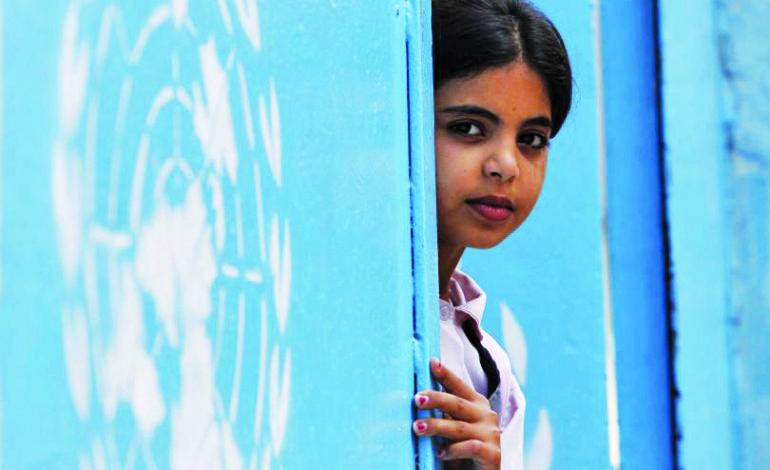By Mohamed Mohamed
It is regrettable that the most basic human needs of millions of Palestinian refugees are now being used as a weapon in the Trump administration’s political assault on Palestinians.
On January 16, the administration decided to withhold $65 million of a planned $125 million in U.S. funding for the United Nations Relief and Works Agency for Palestine Refugees in the Near East (UNRWA).
UNRWA was established in 1949 to provide direct relief and public works programs for the Palestinian refugees who were expelled after the creation of Israel in 1948. For almost 70 years, Israel has failed to address the problem of the refugees that it created, so the U.N. General Assembly has regularly extended UNRWA’s mandate since then.
Over time, with fading hopes that Palestinian refugees would be able to return to their homeland, and with greater needs arising from a more permanent life in their new locations, UNRWA increased its services to include education, health care, social services, infrastructure, microfinance and emergency assistance. UNRWA also employs more than 30,000 people, most of whom are Palestinian.
Most of my own family has first-hand experience with the vital services that UNRWA provides. My grandparents were expelled from their hometown in Palestine in 1948 and ended up in the refugee camps of Lebanon and Syria. In this new precarious reality, living in tents in a foreign place with no job prospects, they likely would not have been able to survive if they did not receive food aid, healthcare and, eventually, their zinc-covered barracks homes built by UNRWA. It is no exaggeration to say that without these services, I might not be alive today.
In addition, my wife, my parents, aunts and uncles, cousins and almost all my relatives were educated in UNRWA schools, and several of them now teach there. When they became sick, they went to UNRWA health clinics. If they needed life-saving surgeries, UNRWA covered most of the cost. While under siege with skyrocketing prices, UNRWA stepped in to provide food assistance to many of my relatives in Syria.
Eliminating or even reducing UNRWA’s services will be highly detrimental to Palestinian refugees in Gaza, the West Bank, Lebanon, Syria and Jordan. Because of the devastating Israeli siege on Gaza, almost 1 million people there rely heavily on food aid from UNRWA. With an unemployment rate close to 44 percent, about 80 percent of Gaza’s population are dependent on international assistance.
As stateless people, Palestinian refugees in Lebanon are not entitled to several basic civil and economic rights. This has marginalized them so much that, among UNRWA’s five fields of operation, Lebanon has the highest percentage of Palestinian refugees living in “abject” poverty.
Due to the violence, destruction and poverty caused by seven years of civil war in Syria, Palestinian refugees in the country have become highly vulnerable and almost all of them now require humanitarian assistance in the form of cash, food and other relief.
Clearly, UNRWA provides some of the most basic human needs and services, and it is sad that President Trump is punishing refugees to gain political leverage over Palestinian leaders, so that they would return to so-called “peace talks.”
Instead, the U.S. should force Israel to pay for UNRWA’s operations, as it is ultimately responsible for creating these refugees. Of course, the chances of Israel directly paying is almost zero, since it often makes the absurd accusation that UNRWA perpetuates the refugee problem (which is similar to claiming that soup kitchens perpetuate homelessness and should be shut down).
But the U.S. could make Israel pay indirectly: By withholding the $3.8 billion in free military aid that it receives each year. Israel was proud to be recently listed as the 23rd richest country in the world, so it should show some more dignity and pay for its own oppressive military, rather than freeloading off of American taxpayers. If President Trump is serious about bringing the Palestinian Authority back to the negotiating table, nothing will be more effective than holding Israel accountable for its crimes against Palestinians.
-Mohamed Mohamed is the executive director of The Jerusalem Fund for Education and Community Development in Washington, DC.






Leave a Reply